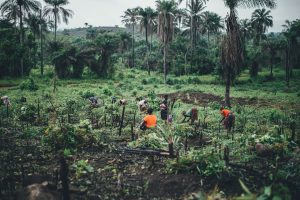Powering the lift-off from poverty
Energy sector reform in Ethiopia
Ethiopia is home to one of the fastest growing economies in the world, with an average growth rate of 10% since 2005. Yet, it remains one of the planet’s poorest countries, where about 24% of the population lived under the poverty line in 2015-16. To tackle this challenge, the Ethiopian government put in place a Growth and Transformation strategy (GTP) aiming to turn the country into a lower middle-income country by 2025. This strategy identified the energy sector as a key driver for development, with access to affordable, reliable and clean energy deemed as critical for poverty reduction and better social outcomes. The strategy also recognised energy as essential for economic growth, industrialization and modern infrastructure.
Aiming to tackle this immense challenge, the government launched the Universal Electricity Access Program in 2005, the First National Electrification Program (NEP) in 2017 and the updated National Electrification Program (NEP 2) in 2019. The Oxford Policy Fellow was part of the implementation of this reform programme. It joined forces with the Ministry of Water Irrigation and Energy to develop a suitable legal framework that would comprise energy policies, the various sector and related laws, and a comprehensive regulatory framework.
Download Publication
Read the story on how Nduta contributed to the National Electrification Program in Ethiopia
Download .pdf
